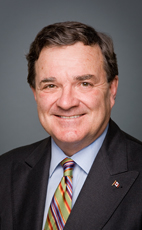Mr. Speaker, I would remind the member opposite that the provisions with respect to changing the tax rules for income trusts do not come into force for some four years for trusts that were trading on October 31, 2006. This is a long period of time. There will be time for context and perspective. It was done similarly to what was done in other places because other places, including the United States, the United Kingdom and Australia, have made it clear that this type of economic instrument was not in the best interests of a competitive, productive economy going forward. That is in the best interests of all Canadians.

